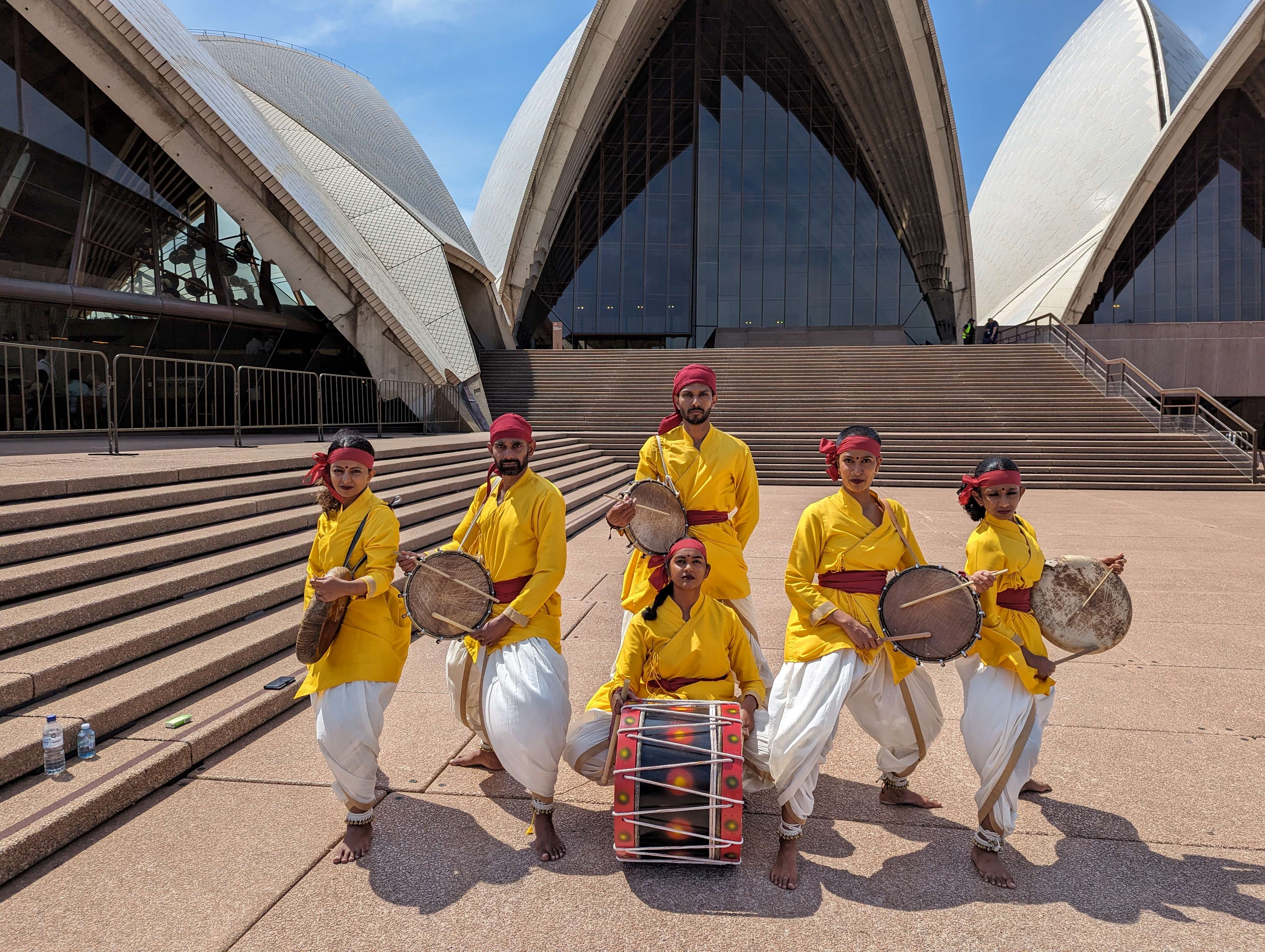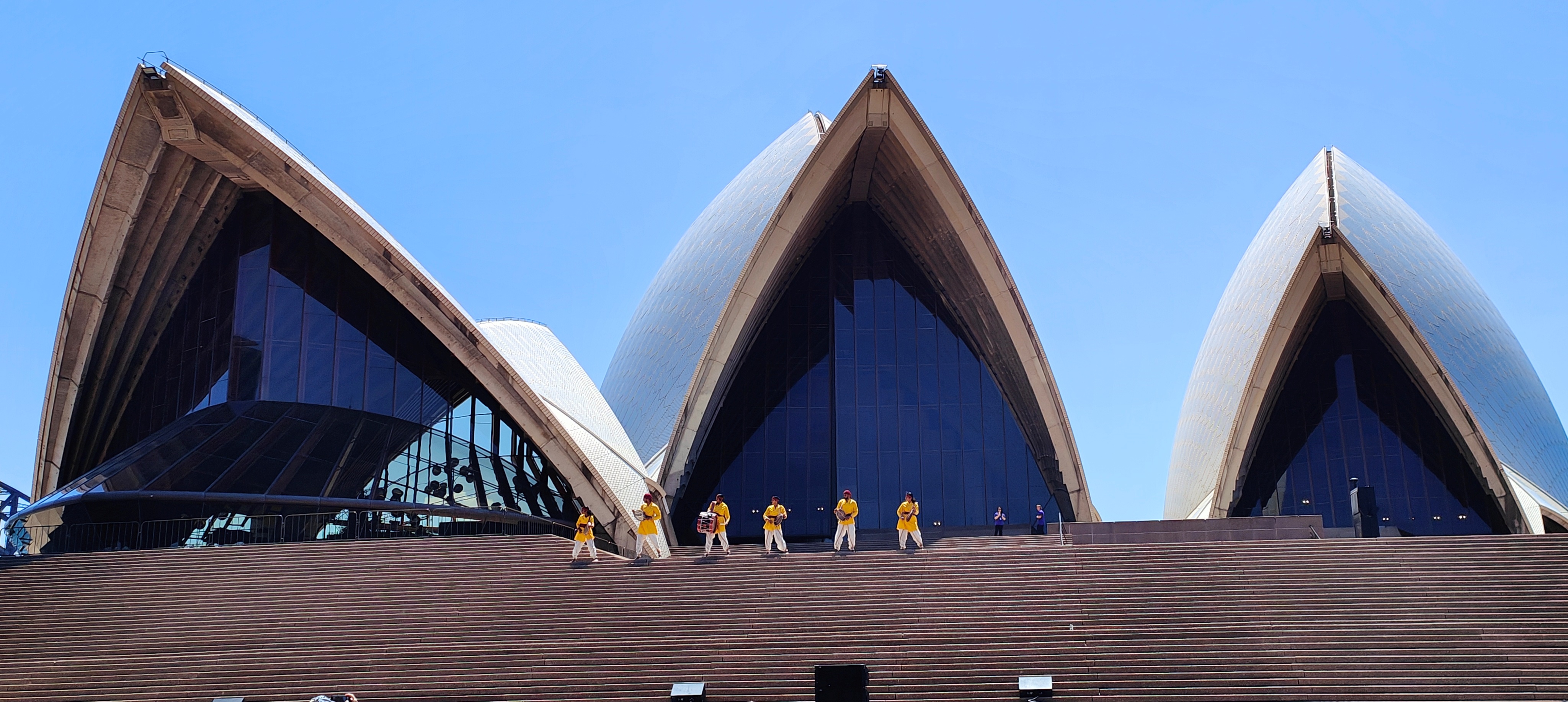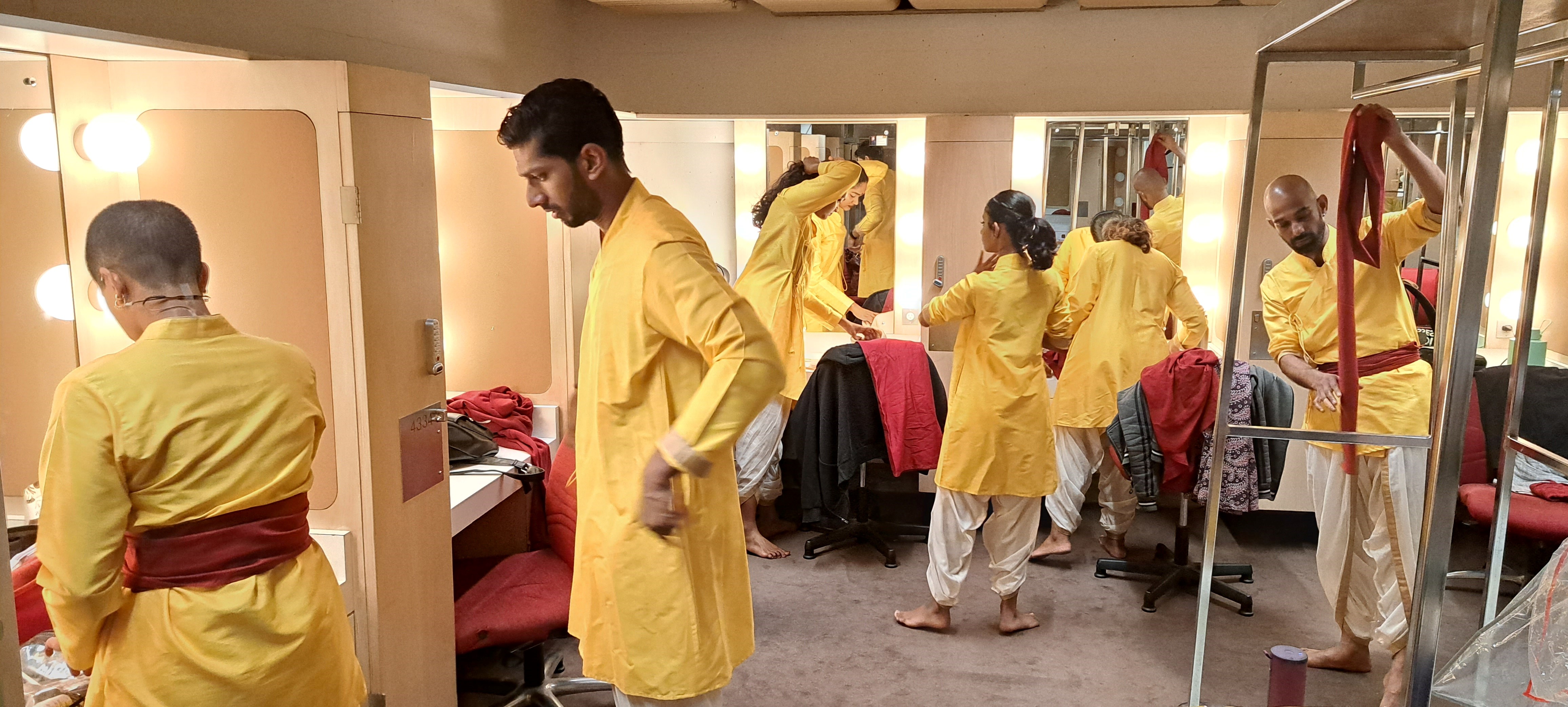Six Tamil artistes took to the Sydney Opera House steps to perform eight 25 minute live shows to mark the 50th anniversary of the opening and inauguration of the world famed art facility. Shyamla Eswaran and Shankari Jeyaseelan of BINDI BOSSES, a South Asian fusion arts company, took the opportunity to showcase their Tamil heritage by collaborating with Tamil artistes Chidambaram R Suresh, Shobana Suresh, Oviya and Senthuuran Thevarajah.
Combining Parai attam and Silambattam, scored to the sounds of ancient Tamil instruments parai, konnakol and morsing, the artistes enthralled the attendees with their performance.

Having undergone a three month rigorous training period, the artistes felt the process enhanced their connection to their roots.
“Though we may reside far from our native land, our lineage remains an indelible part of our identity,” commented founder and artistic director of BINDI BOSSES Shyamla Eswaran.
“Shankari is a Malaysian Tamil, Senthuuran identifies as Eelam Tamil, Suresh is from Chidambaram, and Shobana and Oviya are Ilankai Tamil heritage. We all have migrated to Australia but Tamil binds us.”
BINDI BOSSES is a matriarchal movement: a self-funded South Asian Fusion Arts company based in Warrang (Sydney) that seamlessly blends traditional Indian classical and folk dances with influences from South Asian cinema and street dances from around the world. BINDI BOSSES provides a platform for diverse artists to collaborate and create through dance, costume design, henna art, graphic design, styling, photography, videography, original music composition & production and more. BINDI BOSSES reclaims and celebrates its diverse South Asian heritage by providing a safe space to experiment with and express multifaceted identities.
“We stand in solidarity with the Traditional Owners of the unceded lands on which we practice, perform and stand and use our art to challenge traditional norms and preconceptions. We do not pander to what people outside (or inside) our cultures expect to see. Instead, we are redefining what that looks like on our own terms, beyond the stereotype of Bollywood.”

"Being able to share such a old part of my culture with incredibly talented Tamil artists was special and so much fun," core performing artist of BINDI BOSSES Shankari Jeyaseelan states. "The connection I had with this drum was almost immediate."
Guest performer Suresh Rajendran comments, "I am humbled and honoured for the opportunity to have showcased my ancestral Tamil art forms of Parai and Silambam on the land of the Gadigal people with deepest respect for the traditional owners of this land and to my own roots from which these artistic practices originate."
"I feel so much gratitude and joy. I didn’t realise the power of what we did over two days until I was reflecting afterwards," says guest performer Senthuuran Thevarajah. "To pay respect to our history, our culture, and our ancient art forms in the way we did is truly something special."
 The parai drum is one of the earliest percussion instruments and was initially used as a means to communicate.
The parai drum is one of the earliest percussion instruments and was initially used as a means to communicate.
Silambattam is a Tamil martial art, referenced in various works of Sangam literature, which incorporates aspects of martial arts, yoga and Ayurveda in its practice. The primary weapon used in silambattam is the ‘silambam,’, a bamboo stick.
"As a Bharatanatyam artist, this was my first time performing Parai attam, another ancient Tamil art form," says guest performer Shobana Suresh. "Performing at the open air space on the steps of the Opera House next to the sea, while playing the beats on the Parai drum and the folk moves enabled me to embody the energy from the healing sounds of the Parai."
Guest performer Oviya Suresh enthuses, "I was so happy to perform with professional artists and I am proud of myself for performing at the Sydney Opera House at the age of 11 which is a pretty big deal."
We need your support
Sri Lanka is one of the most dangerous places in the world to be a journalist. Tamil journalists are particularly at threat, with at least 41 media workers known to have been killed by the Sri Lankan state or its paramilitaries during and after the armed conflict.
Despite the risks, our team on the ground remain committed to providing detailed and accurate reporting of developments in the Tamil homeland, across the island and around the world, as well as providing expert analysis and insight from the Tamil point of view
We need your support in keeping our journalism going. Support our work today.
For more ways to donate visit https://donate.tamilguardian.com.


